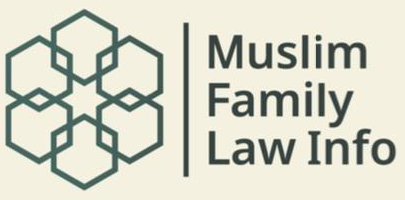Case Studies
We present a series of case studies based on the experiences of women who have contacted the MWNUK Helpline. These case studies offer real-life scenarios and highlight practical solutions to the complex issues faced by women, men and couples.
The names and scenarios have been altered to respect anonymity of individuals.
Warda’s Case
Warda obtained a Faskh dissolution of her Nikah contract through a Shariah Council. Some time later, she reconciled with her former husband. Aware of Islamic legal requirements, Warda informed him that they would need to enter into a new nikah contract in order to resume their marriage in accordance with Islamic law.
However, her husband disagreed. He claimed they were still married, arguing that he had never received notification that the Faskh had been granted. This left Warda confused and concerned about the status of their renewed relationship under Islamic law.
It is important to clarify that a Faskh is a formal dissolution of a marriage contract issued by a qualified Islamic scholar or panel, based on legitimate grounds. It does not require the husband’s consent, and once granted, it terminates the marriage.
If the couple later choose to reconcile after a Faskh, they must enter into a new Nikah. This new marriage must fulfil all the standard Islamic requirements:
- The informed consent of both parties
- A formal offer and acceptance
- An agreed Mahr (bridal gift)
Without these elements, the renewed relationship does not constitute a valid marriage under Islamic law.
Warda’s case highlights a common misunderstanding about the legal effect of a Faskh and underscores the importance of clear communication and procedural transparency from Shariah Councils when granting religious divorces. It also illustrates the need for public awareness about the requirement of a new nikah if reconciliation is sought after a religious dissolution.
Keywords – wali, faskh, domestic abuse, non-British, international family
Mary is a convert to Islam, married to a man in the UK through a nikah contract. They have a son together, but the marriage is not legally registered under English law. Mary is not a British citizen, and she is experiencing severe isolation – she sees no one other than her husband and their son. Her husband is emotionally and financially abusive and exercises significant control over her. Mary wants to leave the marriage and return to her home country, but her husband refuses to issue a Talaq or agree to a Khul’, insisting that she must remain in the UK so he can maintain contact with their son. He is also obstructing efforts to obtain a passport for their child, further limiting Mary’s options.
Mary was not well informed about the rights and responsibilities within an Islamic marriage, including her entitlement to a Mahr (bridal gift). Her husband did not give her a Mahr, but falsely told others that he had, creating difficulties for Mary to later assert her rights. Her Wali (guardian for marriage) was a close friend of her husband’s, and when Mary sought his support to end the marriage, he sided with her husband, urging her to remain in the relationship ‘for the sake of the child.’
In situations like Mary’s, where the husband refuses to issue a Talaq or consent to a Khul’, a woman has the right to seek a Faskh, a religious dissolution of the marriage through a qualified scholar or Shariah Council. Grounds such as emotional, financial, or other forms of abuse may justify a Faskh, which, once granted, formally ends the Nikah.
Mary’s experience highlights several critical points:
- The importance of an impartial and supportive Wali or Wakeel, particularly for converts and isolated women. A Wali should protect the woman’s rights and act in her best interests, not side with her husband or his associates.
- The need for better education and guidance for women, especially new Muslims, on their Islamic marriage rights, including entitlement to a Mahr and routes to exit a marriage where harm is present.
- Procedural transparency and accessibility of Shariah Councils and scholars in supporting vulnerable women through a religious divorce process when other avenues are blocked.
Mary’s case exemplifies how isolation, lack of legal marriage recognition, and unbalanced power dynamics can leave women without recourse unless they are supported by local Muslim communities and independent and informed religious advisors.

















